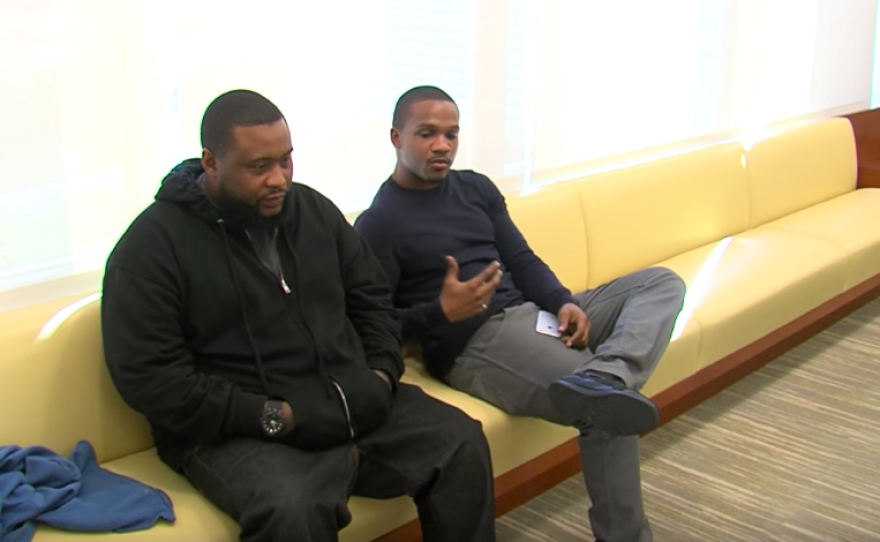Brandon Duncan, a San Diego rapper known as "Tiny Doo," and Aaron Harvey are suing the city of San Diego claiming their civil rights were violated when they were arrested in 2014 under California's gang conspiracy law.
The two men spent seven months in jail before a judge dismissed the gang conspiracy charges in 2015.
Now the men are suing the San Diego Police Department and two detectives because of the freedom they said they lost.
Duncan said the prospect of life in prison is tough for him to get over.
“I can’t go erase it, try to hide the fact that I just went to jail for nine shootings that I had nothing to do with or even knew happened," he said.
The case gained national attention because of the state's little-known gang conspiracy law, approved by voters under Proposition 21. San Diego County District Attorney Bonnie Dumanis used a statute in the law, Penal Code section 182.5, to arrest and prosecute Duncan, Harvey and 13 other men in connection to a string of gang shootings.
The law makes it a felony to be an active member of a gang, to know about the gang’s criminal activity and to promote, assist or benefit from the crime. A person found guilty of conspiracy faces the same prison time as someone who actually carries out the crime, which in this case was 25 years to life in prison.
Though not charged with the actual shootings, the evidence used against Duncan and Harvey included rap lyrics and social media activity.
“I was like yeah, right. I’ve never in my life heard of someone going to jail based on what they talk about in their music," Duncan said. “You get the person who did the crime. You can’t go grab everybody based off somebody else’s crime. Get that person. Do real police work. That’s what you get paid to do.”
Duncan said his music is about his community, not a gang.
“When my mother brought me home from the hospital, she brought me to La Paz, which is a street in Lincoln Park. So yeah, I talk about my community a lot in my music. They felt like, oh, I was talking about a gang street when I talk about La Paz. Like oh, he’s talking about these gang-infested areas. I’m talking about where I grew up at, period," Duncan said.
Co-defendant Harvey said he was terrified in jail.
"I thought I was going to die," Harvey said.
In 2014 Harvey was living in Las Vegas when U.S. Marshals came for him.
San Diego Police Department detectives testified his social media accounts revealed his active gang ties.
“Initially it brings you some hope because you’re like, nobody goes to jail over Facebook pictures, right?” Harvey asked.
Detectives said Harvey posted pictures of himself with other gang members.
“The judge is like, oh, that’s enough. So you’re scared. It brings you back to being terrified. I’m really about to go to jail for life over Facebook pictures,” Harvey said.
He said jail lived up to its violent reputation.
“You got to hold all that in because at any moment in time when it goes down, it goes down. So your tears ... your scared-ness, you got to live to see another day. You’ve got to live to see another court date,” Harvey said.
One of those dates was a hearing on the merits of the district attorney’s case against Duncan and Harvey. San Diego Superior Court Judge Louis R. Hanoian ruled there was no evidence connecting the men to the drive-by shootings.
After seven months in jail, they were free.
It has been almost two years, but Harvey said he is stuck.
“I still feel like I, at any moment in time, I could just go back to jail,” he said.
Duncan described the feeling as fear.
"You’re still scared — 182.5 is still on the books. I don’t know if they’re going to kick in my door based on what I’m doing with you right now — speaking out, being a voice for the voiceless.”







